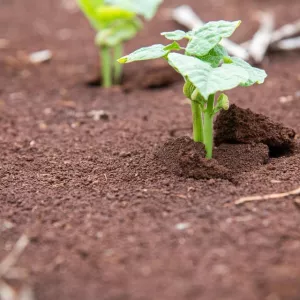Nurturing Africa’s Soil Health: Towards Zero Soil Loss and Runoff
Soil erosion is sweeping away African farmers’ profits. With current soil degradation rates up to 100 times higher than the soil’s natural regeneration rate, farms are suffering from a widening crop yield gap that is estimated to cost Africa an annual loss of USD $68 billion. The prevalence of soil erosion and runoff across 65% of cropland has seriously jeopardized

Nurturing Africa’s Soil Health: Towards Zero Soil Loss and Runoff
Soil erosion is sweeping away African farmers’ profits. With current soil degradation rates up to 100 times higher than the soil’s natural regeneration rate, farms are suffering from a widening crop yield gap that is estimated to cost Africa an annual loss of USD $68 billion.
The prevalence of soil erosion and runoff across 65% of cropland has seriously jeopardized the provision of ecosystem services, pushing our agricultural systems to “breaking point”, as indicated by the FAO. Rainwater not absorbed by the soil is lost via surface runoff, carrying away tons of soil sediments. With up to 650kg of nitrogen lost per hectare each year, crop yield losses have reached 66%. As a result, crop production has become a nutrient-intensive investment that millions of resource-poor farmers cannot afford. Consequently, affected households are pushed into unsustainable activities – such as deforestation – to earn a living.
We can expect erosion problems to intensify with the acceleration of climate change with an increasing trend of floods (duration, intensity, and frequency) across sub-Saharan Africa.

